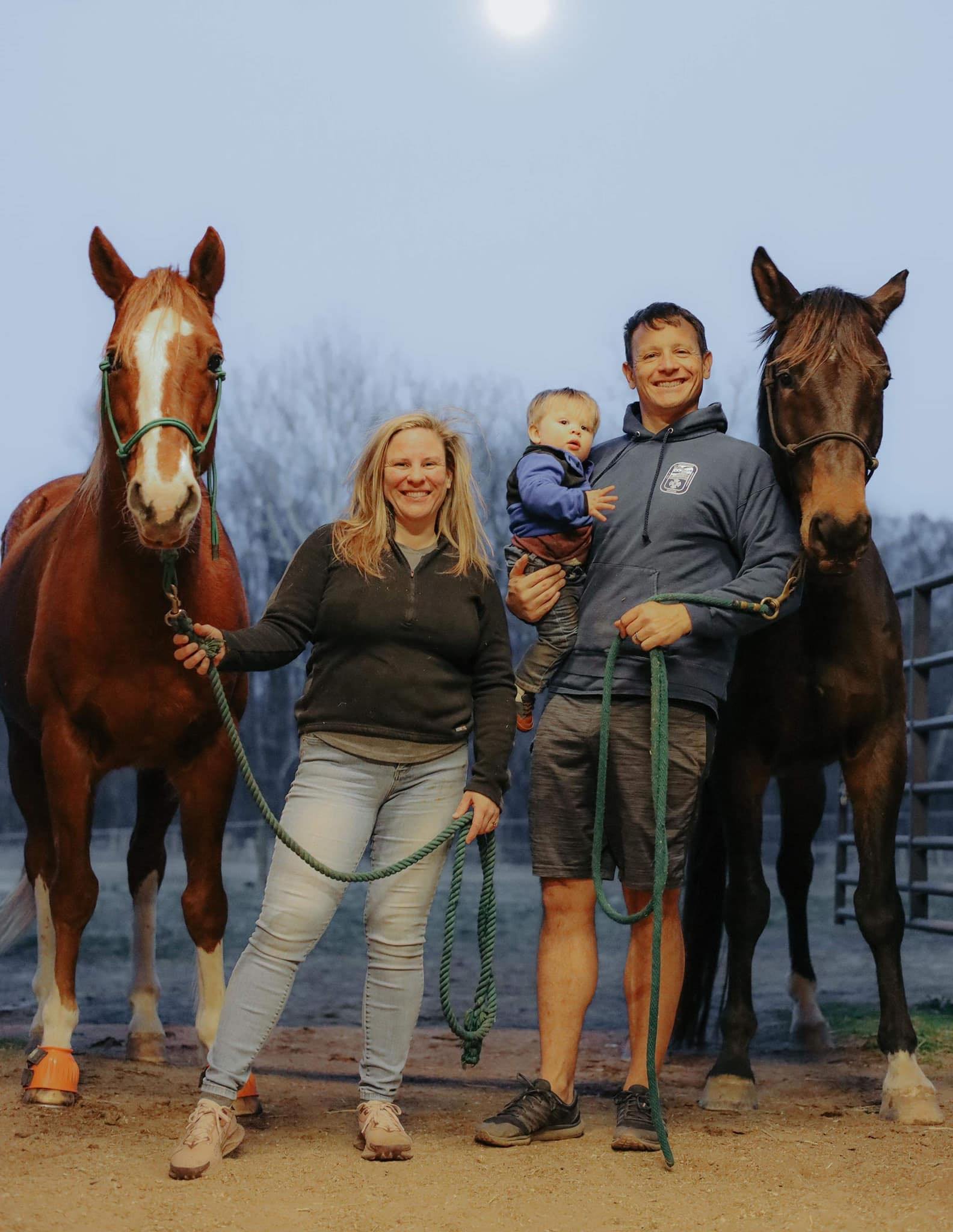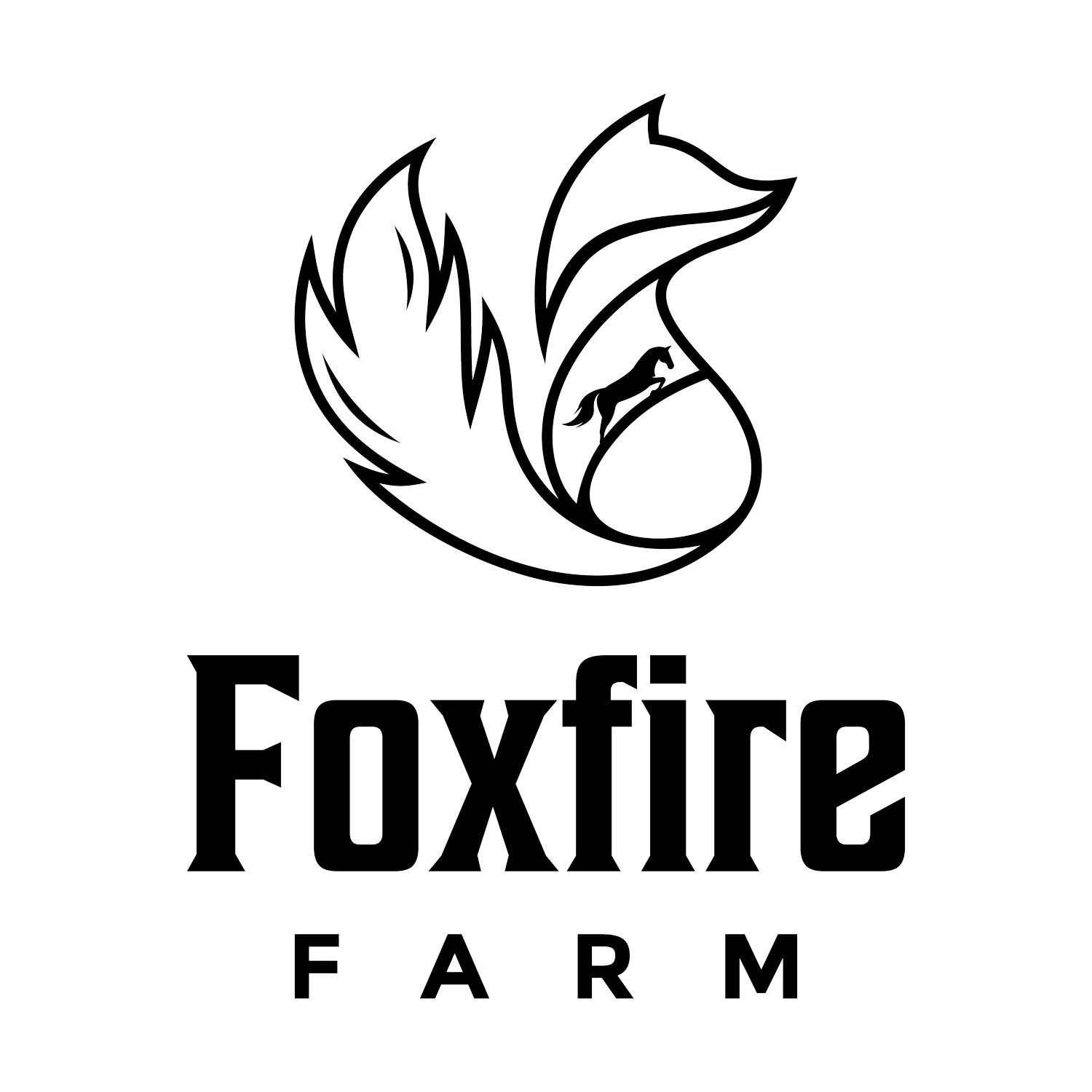How to Prevent Beautiful Farmland from Becoming Yet Another McMansion Development
“Please don’t sell to a developer!”
We found ourselves the owners of 2 farms in 2020 when we decided to pursue a years-long dream of opening up a horseback trail riding business and purchased the 62-acres adjoining the 20-acre farm we already owned in order to have the land for our trails.
The folks who owned the 62-acres had held it in their family since the 60s.
They received interest from many different parties, including folks who wanted to build a slaughterhouse here.
Ours was probably not the strongest offer they received, but it most aligned with their values and the outcome they wanted for their family farm - to see it remain a farm that raised children and animals and remained undeveloped.
We knew we were entrenched in farmland that had families who went back generations and were sensitive to businesses and developments encroaching on the land they grew up around.
But, we also knew that we were in alignment with the agricultural values of the area by opening up an agriculturally-centered business.
However, before we began the trail rides (and later, the meat and poultry sales), we sat down and brainstormed all the ways we could limit the impact that us having a business might have on the neighbors:
We had trail ride guests park at an already-established winery, picked them up in our truck, and drove them into our farm via a back entrance to significantly reduce the traffic on our shared driveway.
We limited our trail ride hours to only the weekends.
We made sure to wrap up by a reasonable hour.
We gave detailed directions and told any clients who did need to come directly to the farm to drive slowly and carefully because there were children and animals about.
We made sure we had all of our licensing in place.
We offered to pay to install speed limit signs, directional signs to our farm, “children playing” signs, and speed bumps to limit the inconveniences of any lost guests or guests driving too fast.
We contributed to their kids’ school drives and fundraisers.
We took any opportunity we could to be thoughtful and helpful and to swiftly correct any mishaps.
However, the amount of negative backlash from the immediate neighbors was more than we were prepared for:
They came onto our land and marked out an area to build a deterrent to prevent us from driving between our two properties.
They put up “No Trespassing,” “Do Not Enter,” and “Residents Only” signs and cement barricades on the entrance to the drive to our business.
They reported our farm camp to the state as an “unlicensed daycare.”
They brazenly and blatantly photographed and filmed everything we did - violating any shred of privacy we could have felt in our own home. Dehumanizing us. Photographing our child. Sending photos and videos of us around to the neighborhood in an attempt to turn them against us.
They spread gossip mercilessly.
They screamed at us for having visitors.
They threatened our animals and staff.
They told us to find another way to get to our own property besides driving on the part of our farm that went past their house.
They ceased to maintain the easement drive that led to our farm.
Needless to say, we eventually tired of this.
We recently sold the 20-acre farm and moved all of our operations to our 62-acre farm to create some distance.
In addition to their derogatory commentary on our home’s listing postings on social media, we also simultaneously received plenty of some version of:
“Please don’t sell to a developer!”
This comment from an outsider who presumably enjoys driving through the undeveloped farmland, as well as the behavior from the entrenched neighbors - who still surely don’t want the land being turned into a townhouse complex - got me thinking:
What are these people doing to support their local farms so they aren’t FORCED to sell to a developer??
Farm country is notoriously wary of “outsiders” or new folks coming in and purchasing the land nearby.
We have been called “entitled” and “hobby farmers” by the neighbors in a most derogatory way - even though this farm is the full-time, sole support of our family.
Even though I grew up on a farm.
Even though we support the community with the revenue generated here.
Even though we aim to regenerate the land via sustainable, no-spray farming practices and provide healthy food alternatives for our community.
Even though in this day and age, the only way to afford a farm of the size we purchased is to have that farm generating revenue (and legally, to receive the Maryland agricultural tax break, we are REQUIRED to generate revenue from our land).
On one-hand, if we purchased 82-acres of land, never saw it and just commuted every day to our desk jobs in the city, we would be considered outsider “city slickers” ignorant of the country way of life and unwelcome.
We would be doing nothing to better the land.
We would not be supporting our community with clean meat and eggs and a source of fun on horseback.
We would eventually have to sell because it would become too much to keep up with in our limited time off from work.
On the other hand, if we open a business here, we are an inconvenience, a drain, a source of traffic and unwanted tourism.
We are “entitled” for using our land how we see fit and for making a living on it.
Yet the average age of today’s farmer is 60 years old - and there are not a lot of younger folks waiting in the wings to take their place.
The price of land today is so high it is a complete barrier for entry to farming for younger farmers, new farmers, or farmers from underserved communities.
The stigma of a lifestyle of poverty makes farming an unattractive enterprise for our youth.
Old ways are not being passed down to the new generations because many older farmers want their kids to go be anything else, and even if not, many young folks do not want to take over the family business.
Young, hopeful farmers often have to learn on their own, find and pay for outside classes, and fail plenty before hopefully finding success - if they are even able to.
With no one in the wings, as farmers age and developers offer them sums of money they’ve never dreamed of, they understandably sell and go enjoy their retirement, and the community suffers the loss of yet another farm.
Between 2017 and 2022, the United States lost nearly 142,00 farms - or 7% of the entire nation’s farms.
IN FIVE YEARS.
How can we stop this bleeding?
How can we keep the farms we so enjoy visiting, learning from, looking at, and being surrounded by?
WE CAN AND MUST SUPPORT THEM.
First and foremost, we must support them financially.
Financial and community support is the only way that small, family farm can afford to stay in business and out of the hands of developers!
Rather than shunning a new agricultural enterprise that moves in to your farming community, rally around them!
Welcome them, and mean it - with no weird, entrenched, old school conditions or biases.
Volunteer your time. Offer to help. Spread the word. Hype them up on social media.
Purchase from them.
How convenient is it to have a farm that can supply your family with fresh meat, eggs, vegetables, or agritourism fun RIGHT NEXT DOOR TO YOU?!
I hear many folks say that farm-fresh food is too expensive.
They can get the same cut of meat from the grocery store for a lower price.
But please understand that the food at the grocery store is subsidized, and the cost of the corners cut by factory farms is paid for with your health, and with the loss of the small, family farms in your neighborhood.
Your farmer is not packing every square inch of their farm with animals grown in assembly line, production-like fashion at the expense of the animals' health and well-being.
Family farms, as a result, are necessarily less efficient.
This means more time spent on more labor-intensive growing practices, such as moving poultry onto new, fresh grass each day or hand-picking fruits and vegetables.
Farming ethically means prioritizing the well-being of animals, the health of the soil, and the overall environment.
This includes practices like rotational grazing, organic fertilization, and humane animal treatment—all of which are labor-intensive and costlier than conventional methods.
As a result, farm fresh food prices must reflect the true cost of these sustainable practices.
When you buy from a local farmer, you’re supporting practices that are good for the planet and healthier for you.
Unlike large grocery stores that source their fruits and vegetables from all over the world, small farms grow what’s in season locally.
This means they don’t rely on the mass production methods that often compromise quality and taste.
While seasonal produce can be more expensive, it’s fresher, tastier, and packed with more nutrients.
Small farms don’t benefit from the economies of scale that large commercial farms do.
They typically produce smaller quantities and have fewer distribution channels.
This means higher costs per unit of production.
Additionally, many small farmers sell directly to consumers through local markets or CSA (Community Supported Agriculture) programs, which involves more direct labor and less automation.
These added costs are part of why farm fresh food prices are higher.
When you buy farm fresh food, you’re paying for quality.
Small farms often prioritize growing heirloom varieties and using organic methods, which can be more labor-intensive and yield smaller harvests.
However, the result is food that is richer in flavor and nutrition.
This focus on quality over quantity ensures that you’re getting the best possible product, free from harmful pesticides and genetically modified organisms (GMOs).
Chris preparing to hook up our laying hens’ coop to the tractor to move to a new grazing area.
When you buy directly from a farmer, you have the opportunity to learn about how your food is grown and raised.
This transparency builds trust and allows you to make informed choices about what you’re eating.
Knowing that your food has been produced ethically and sustainably adds significant value, making the higher price tag well worth it.
Purchasing from local farmers means you’re putting money back into your community, and you’re helping the environment by reducing the carbon footprint of the food you eat by eating locally and not having your food transported from across the country.
Small farms are often family-owned and operated, and the money they earn goes towards supporting local businesses and services.
By choosing farm fresh food, you’re contributing to the sustainability of your local economy and helping to create jobs in your area.
By enjoying their agritourism offerings, farm dinners, and other activities, you are learning about your local food and building a connection to your farmer.
This sense of community and support is something that big grocery chains simply can’t offer.
Our yoga on the farm day.
If we don’t figure out how to break out of this cycle of hostile, old school countryfolk, national grocery store chains, and factory-farming by supporting our local, small, family farms, we will quickly have no more farmland left.
And no one is taking a weekend drive out to the local townhouse subdivisions to enjoy the fresh air.
Our son, Declan, the future of the family farm.













